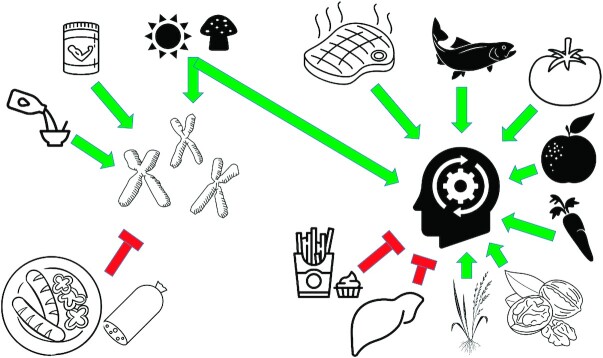FIGURE 2.
Summary of findings of studies assessing the effect of nutritional biomarkers on biological aging in older adults Branched-chain amino acids (e.g., supplementation), calcium (e.g., milk), and vitamin D (e.g., mushrooms, sun exposure) protect the telomeric ends of chromosomes, whereas ultra-processed foods (e.g., salami, sausages), arachidonic acid, and other proinflammatory compounds are associated with shorter telomeres. Vitamin B-12 (e.g., red meat), vitamin C (e.g., oranges), vitamin D (e.g., mushrooms, sun), vitamin E (e.g., nuts), lycopene (e.g., tomatoes), carotenoids (e.g., carrots), ω-3 and ω-6 fatty acids (e.g., fish), and rice germ bran preserve cognitive function in older adults, whereas trans fatty acids (e.g., French fries) and fibrinogen (endogenously produced in the liver) correlate with cognitive function decline.

